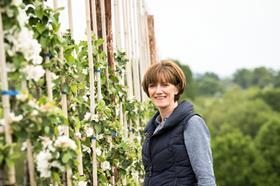
I’m sure you will all have seen the big news last month: the government has finally agreed to run a pilot seasonal workers scheme for the horticulture sector.
This is a major victory and follows over five years of hard work collecting evidence, shaping our arguments, and presenting them to government in a convincing manner.
The sector has garnered considerable support from a large number of MPs, in particular the Defra secretary Michael Gove and Home Office secretary Sajid Javid, who we convinced of the seriousness of the situation and the need to take action. The announcement by the Home Office is also recognition that we have a thriving sector producing the highest-quality fruit, vegetables, plants and flowers, and the government wishes to support that.
So what does the pilot scheme look like? We don’t have the full details just yet but we know it will consist of just 2,500 placements for six months at a time. It will run for two years and be managed by two labour providers.
It’s by no means the complete answer to our current labour shortages but it is certainly an important step in the right direction. We are already working hard to influence the details with Defra to make sure all pilot results are meaningful.
Going forward, this pilot must lead to a full scheme that enables us to plug any shortfall in workers. This is important recognition from government too of the importance of the seasonal workforce to our sector.
The NFU will continue to engage with the government to provide the evidence of the sector’s ongoing labour shortages and keep the pressure up for a comprehensive scheme once this pilot concludes.
I would like to take this opportunity to personally thank everyone in the industry who has worked with the NFU, and very many did, whether by talking to MPs, media or supplying evidence; it is very gratifying to see that our hard work is paying off.
But as we receive one major announcement for our sector, another is surely to follow and this month the government opened a review of the Agriculture & Horticulture Development Board. With Brexit less than a year away and our sector facing some of its biggest opportunities and challenges in decades, the role of AHDB is more important than ever.
This is an important opportunity for growers and industry to give their views on how the levy body is run and what its priorities should be in this important time. I know there are a lot of strong opinions out there so I would encourage everyone to get their response in via the Defra website by the 9 November deadline.



